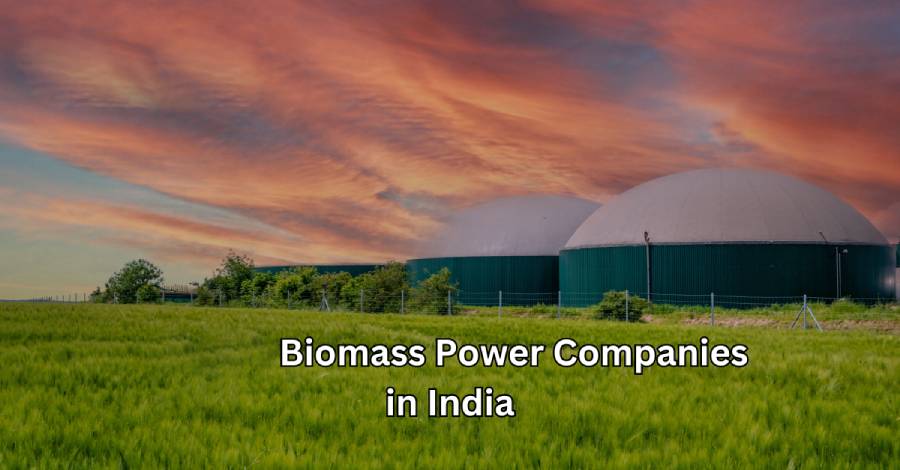India, with its rapidly growing energy demands and focus on sustainability, is witnessing a remarkable rise in bioenergy adoption. Bioenergy—derived from organic materials like agricultural waste, biomass, and biofuels—is playing a key role in reducing dependence on fossil fuels and cutting carbon emissions. The Indian government’s initiatives under the National Bioenergy Mission and rising private investments have further fueled this sector’s growth. Several innovative companies are leading the charge, transforming waste into clean energy and promoting a circular economy. In this article, we highlight the Top 10 Bioenergy Companies in India that are driving the nation toward a greener and more energy-secure future through cutting-edge technology and sustainable practices.
Bioenergy Companies in India
Discover the top 10 bioenergy companies in India that are leading the way in renewable energy production and distribution, driving a sustainable future for the country.
1. Praj Industries
Praj Industries is arguably India’s best-known bioenergy technology company, delivering ethanol plants, biorefineries, and CBG (compressed biogas) solutions globally. Their focus on integrated bio-mobility platforms and industrial biotech solutions has made them a leader in commercialising biofuels at scale.
2. Thermax Limited
Thermax Limited supplies industrial boilers, waste-to-energy systems and biomass combustion technology. With decades in industrial energy equipment and increasing activity in biomass and waste heat recovery, they’re an important supplier for commercial bioenergy projects.
3. Bharat Heavy Electricals Limited (BHEL)
Bharat Heavy Electricals Limited is a major engineering and manufacturing giant that provides biomass power plant equipment and turnkey solutions for utility-scale biomass projects, leveraging strong EPC capabilities. Their involvement helps move large, grid-connected biomass projects from concept to operation.
4. Husk Power Systems
Husk Power Systems focuses on decentralised, hybrid bioenergy systems — converting rice husk and other agri-residues into reliable power for rural and weak-grid communities. Their modular approach to distributed renewable energy has proven impactful in off-grid electrification.
5. Abellon Clean Energy
Abellon Clean Energy develops biomass and waste-to-energy projects and has advanced into biofuel feedstock and processing. They’re active in agri-waste management and building circular value chains that convert residues into both energy and usable by-products.
6. SAEL Industries
SAEL Industries operates waste-to-energy plants and has been highlighted for large-scale procurement of crop residue for power generation — a critical activity that tackles stubble burning while producing clean electricity for local grids. Their regional projects are an example of turning a pollution problem into renewable power.
7. TruAlt Bioenergy
TruAlt Bioenergy is a biofuels player that has recently gained regulatory approvals to expand its retail and distribution footprint, reflecting the growing commercialisation of advanced biofuels in India. Their move toward fuel retailing signals a shift from pilot projects to market-scale operations.
8. Moser Baer Clean Energy
Moser Baer Clean Energy has been listed among India’s biomass power players—historically involved in project development and biomass power generation—representing the private sector’s role in biomass power deployment. (Note: company activities and status can evolve; check latest filings if you plan a partnership.)
9. A2Z Group (waste-to-energy)
A2Z Group works on municipal solid waste (MSW) management and waste-to-energy projects across India. Converting urban waste streams into energy is a key plank in India’s sustainable urbanisation and circular economy ambitions.
10. Simran Farms / Other regional biomass players
India’s bioenergy landscape also includes many specialised and regional leaders (for example Simran Farms, Biomax Fuels and other manufacturers and EPC firms) that operate biomass power plants, pellet manufacturing units, and local biogas/CBG projects. These companies collectively enable last-mile project implementation and feedstock aggregation.
Why these companies matter
Bioenergy in India does more than decarbonise transport and power: it tackles crop residue burning, creates farmer income from feedstock supply, reduces municipal waste burdens, and produces fuels that can be blended into existing transport networks. The mix of large industrial players (Praj, Thermax, BHEL) and agile innovators (Husk, Abellon, TruAlt, SAEL) shows the sector moving from demonstration to deployment.
How to pick a partner or supplier
If you’re exploring projects, consider: (1) technology proven at scale; (2) end-to-end capabilities (feedstock, processing, EPC, O&M); (3) experience with local regulations and fuel-offtake; and (4) commitments to circularity and community benefits. Larger names bring scale and proven systems; regional players often bring speed and local feedstock networks.
Final thought
India’s bioenergy ecosystem is expanding fast — from ethanol and CBG to biomass power and MSW-to-energy — and the companies above are among those converting policy momentum into on-ground projects. Whether you’re a policymaker, investor, or project developer, tracking these firms gives a clear view of who’s shaping India’s bioenergy future.

